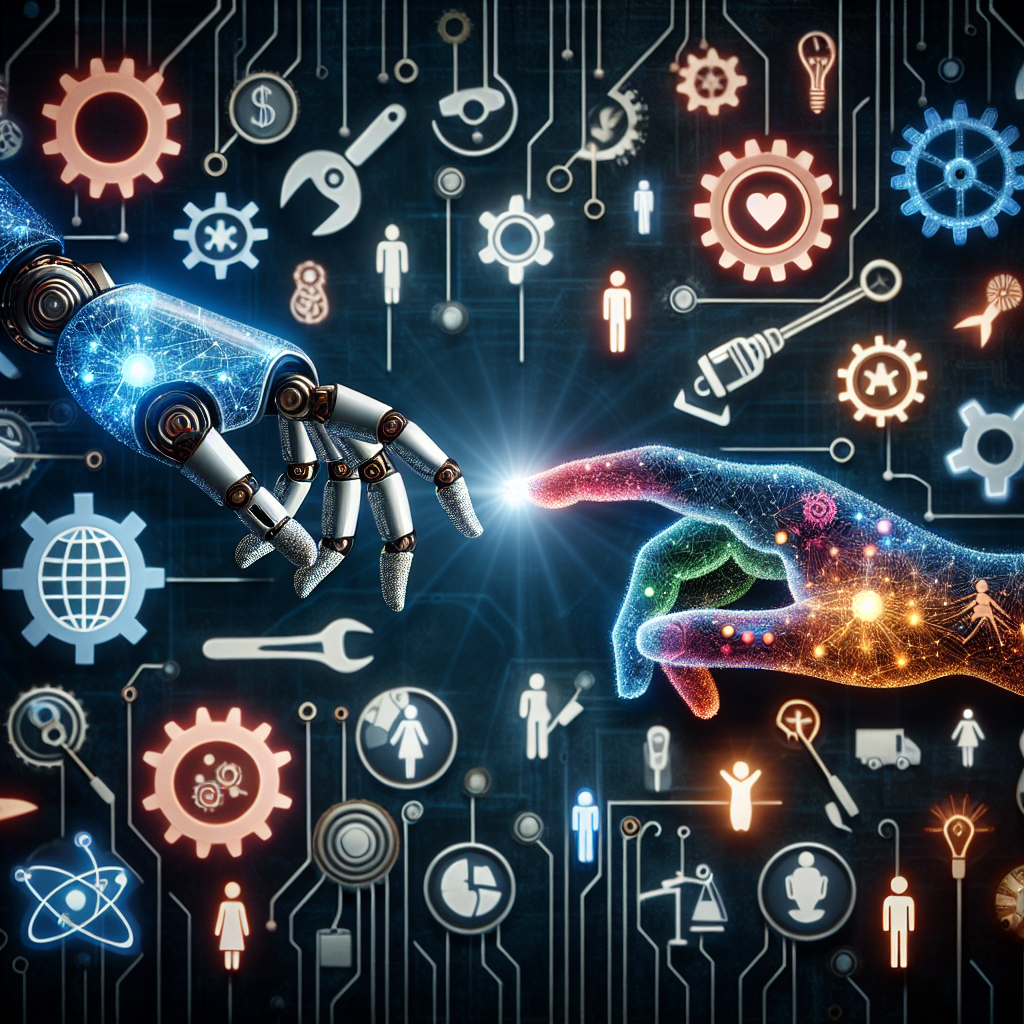With the rapid advancement of technology, the job market is undergoing significant changes due to the rise of Artificial General Intelligence (AGI) and automation. AGI refers to machines that possess the ability to perform any intellectual task that a human can do. This includes reasoning, problem-solving, understanding natural language, and learning from experience. As AGI continues to develop and become more sophisticated, its impact on the job market is becoming increasingly pronounced.
The Impact of AGI on the Job Market
Automation has already had a significant impact on the job market, with many routine and repetitive tasks being automated by machines. This has led to the displacement of workers in industries such as manufacturing, retail, and transportation. With the development of AGI, the scope of automation is expanding to include tasks that were previously thought to be the exclusive domain of humans.
One of the key ways in which AGI is changing the workforce is by increasing the efficiency and productivity of tasks. Machines equipped with AGI can work faster and more accurately than humans, leading to cost savings for businesses and increased output. This has the potential to revolutionize industries such as healthcare, finance, and customer service, where precision and speed are crucial.
Another impact of AGI on the job market is the creation of new job roles and the evolution of existing ones. As machines take over routine tasks, humans are freed up to focus on more complex and creative work. This has led to the emergence of roles such as data scientists, AI engineers, and robotics technicians, which require a combination of technical skills and domain knowledge.
However, the rise of AGI also poses challenges for the job market. One of the key concerns is the potential for mass unemployment as machines take over more tasks traditionally performed by humans. This could lead to social unrest and economic instability, as large numbers of workers are displaced and struggle to find new employment opportunities.
Another challenge is the need for workers to adapt to the changing nature of work. As automation becomes more widespread, workers will need to acquire new skills and competencies to remain competitive in the job market. This could require significant investments in training and education, as well as a shift in mindset towards lifelong learning.
Overall, the impact of AGI on the job market is complex and multifaceted. While automation has the potential to increase efficiency and productivity, it also raises concerns about job displacement and the need for workers to adapt to a rapidly changing work environment.
FAQs
Q: Will AGI lead to mass unemployment?
A: While the rise of AGI may lead to job displacement in certain industries, it is also likely to create new job opportunities in emerging fields such as artificial intelligence, robotics, and data science. The key is for workers to adapt to the changing nature of work and acquire the necessary skills to remain competitive in the job market.
Q: How can workers prepare for the impact of AGI on the job market?
A: Workers can prepare for the impact of AGI by investing in continuous learning and upskilling. This could involve taking online courses, attending workshops, or pursuing advanced degrees in fields related to artificial intelligence and automation. It is also important for workers to be proactive in seeking out new job opportunities and networking with professionals in their industry.
Q: What role can governments play in mitigating the impact of AGI on the job market?
A: Governments can play a crucial role in mitigating the impact of AGI on the job market by investing in education and training programs that equip workers with the skills needed to thrive in a digital economy. They can also support initiatives that promote entrepreneurship and innovation, which can create new job opportunities and drive economic growth.
Q: How can businesses leverage AGI to improve their operations?
A: Businesses can leverage AGI to improve their operations by automating routine tasks, streamlining processes, and enhancing decision-making capabilities. This could involve implementing AI-powered software solutions, deploying robotics in manufacturing facilities, or using machine learning algorithms to analyze large datasets. By embracing AGI, businesses can increase efficiency, reduce costs, and gain a competitive edge in the marketplace.
In conclusion, the impact of AGI on the job market is both disruptive and transformative. While automation has the potential to revolutionize industries and improve productivity, it also raises concerns about job displacement and the need for workers to adapt to a rapidly changing work environment. By preparing for the impact of AGI and embracing new opportunities, workers and businesses can navigate the challenges and opportunities presented by this technological revolution.

